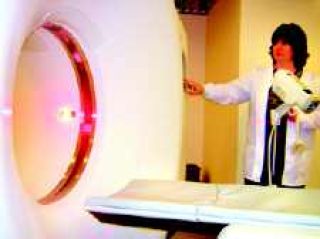SNOQUALMIE – As the drive for medical services on the Eastside begins to take shape, the Snoqualmie Valley Hospital is enjoying its position in the Valley.
Overlake Hospital Medical Center of Bellevue and Swedish Medical Center of Seattle both have plans to open campuses in Issaquah. Both have applied for a certificate of need from the state, the required documentation when planning to build a hospital that takes into account the needed population to make a hospital viable. The state, which is reviewing both of the hospitals’ applications concurrently, could make one of four decisions. It could grant certificates to both projects, to one project, to neither of the projects, or to both, but with certain restrictions.
While the larger hospitals jockey for a position in the Eastside market, the smaller Snoqualmie Valley Hospital in Snoqualmie is preparing for its future as well.
“We can co-exist with any hospital system,” said hospital administrator Rodger McCollum.
Optimism has not always been the norm at the hospital. Historically the Snoqualmie Valley Hospital has been a difficult operation. Since first opening it has been shut down twice due to financial problems. A broken boiler caused the hospital to temporarily shut down last fall, and a weekend with no directive to boil water during an E. coli outbreak caused facility and communication issues to surface. Jeff Lyle, the superintendent who had gotten the hospital reopened and back on its feet after being closed for a second time, resigned last December and was replaced by Alan MacPhee, who was the chief financial officer under Lyle.
MacPhee stayed on as an interim superintendent while the board started its search for a permanent replacement. He spent a couple of months workng to get the hospital repaired and its equipment updated, and then left in May to move on to another job.
North Bend native McCollum was brought in by the hospital board on an interim basis to continue the hospital’s recovery from last winter. In August, he was officially sworn in as the permanent administrator.
With McCollum now firmly at the helm, he said the hospital is moving to improve incrementally by carefully acquiring additional services. To prepare for those services, the hospital first had to rectify its facilities problem. McCollum said the hospital has repaired, repurchased or recertified all the equipment it has. One of its acquisitions was a $500,000 CT scan machine that, along with a weekly MRI service, will allow medical imaging to happen right on campus. The hospital will also be talking with University of Washington Physicians about getting digital mammography to its office campus just up the road from the hospital.
“Imaging is a crucial component of medicine,” McCollum said.
The hospital, which had an urgent care facility, now has a full-fledged emergency room. To have an official emergency room, the hospital must keep it open 24 hours a day and staff it with emergency medical care professionals. The hospital met all the requirements and was certified in August.
Additionally, a nurse call system was installed; eye surgeries have been taken place in the surgical ward; cardiology clinics are offered every Friday; and the hospital hopes to have its own food services up and running by Oct. 1.
“Everything in the hospital is working the way it should,” McCollum said.
With a revamped campus, McCollum said the hospital will begin working with Overlake to procure more services. It is presently working out the details of an agreement that would have its geriatric behavioral health unit, also called Jeanne’s Place, managed by Overlake.
In coming months, the hospital will be looking to include Overlake in other services as well, such as gastro entrology, orthopedic/sports medicine and bone density/osteoporosis procedures. While procedures such as delivering babies need extensive support services that the hospital does not have, McCollum said he will be looking to get as many options as he can to the Valley.
All of the services are being added in an effort to make the hospital viable. New services will start new lines of revenues and new administrators to present services, such as Jeanne’s Place, will offer the kind of the administrative oversight and referring physician base the hospital has been lacking.
“They [Overlake] can keep it [Jeanne’s Place] full,” McCollum said.
In addition to helping facilitate new services with Overlake, the hospital also hopes to be certified as a critical access hospital by the federal government in the next 6-8 months. That certification would allow the hospital to receive money distributed under a Medicare program that enables rural medical centers to stay open.
Locally, the hospital wants to continue its outreach to primary care providers. McCollum said he wants the hospital to offer a full-range of care that will allow Valley residents to stay local for primary care services, while relying on specialists for more intense care.
Hospital officials hope that additional services and certification, along with the tax revenue from being a public hospital, will make it financially solvent.
“It’s almost the spirit of being an entrepreneur,” said Kevin Hauglie, who was appointed to the hospital board to fill a vacancy left by Carol Hoch.
Although the hospital will be working closely with Overlake, officials from both sides said the hospital would remain an independent entity that answers to its district, which stretches from the Snoqualmie Pass all the way up to parts of Duvall.
“It is important for them [Snoqualmie] to make independent decisions and we respect that,” said Darin Libby, Administrator for the Overlake Hospital Medical Center Project in Issaquah.


